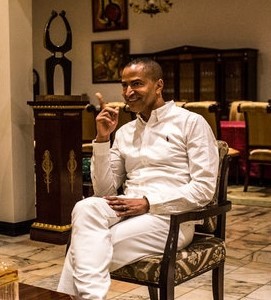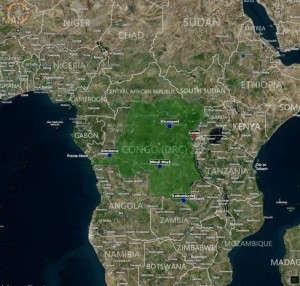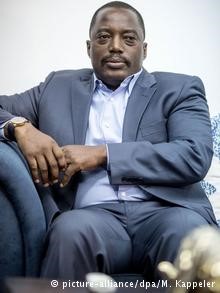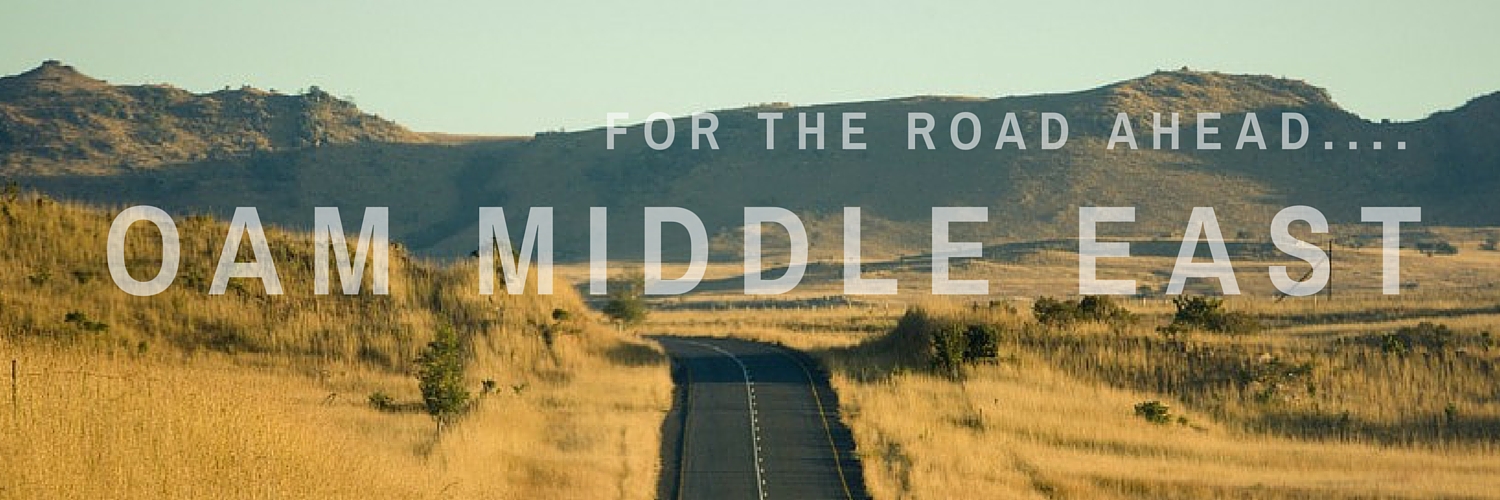The Democratic Republic of Congo’s government this week issued an arrest warrant for Presidential hopeful Moise Katumbi on charges that he recruited foreign mercenaries, escalating a political crisis in the country as it prepares for elections in six months (in November 2016). In March, four of Katumbi’s bodyguards, including one American, were arrested before being brought to Kinshasa and accused of being mercenaries.
“The public prosecutor has charged Mr. Katumbi and issued a provisional arrest warrant,” government spokesman Lambert Mende said on 19 May in the capital, Kinshasa. “He is now at the disposition of the judge who could detain him in prison or put him under house arrest, but he is no longer free.”
 Political tensions in Congo escalated when Katumbi, a provincial (Katanga) powerbroker and former close ally of president Kabila, was charged hours after announcing he would run for president in the December elections.
Political tensions in Congo escalated when Katumbi, a provincial (Katanga) powerbroker and former close ally of president Kabila, was charged hours after announcing he would run for president in the December elections.
The former governor of the copper-rich Katanga province ended months of speculation on May 4 by declaring his intention to run for president, hours after the Justice Ministry opened the case against him. He faces allegations that he used unauthorized foreign security personnel in Congo and he appeared in front of the prosecutor three times in the past week as part of an ongoing investigatory hearing.
Katumbi, 51, has denied the allegations and said President Joseph Kabila’s administration is trying to smear him. The U.S. government has also said it believes the allegations to be false, following the detention of the U.S. citizen working in the former governor’s security detail.
Katumbi was hospitalized last week in Lubumbashi after inhaling tear gas fired by police as he and his supporters arrived at court on May 13, however Congo’s assistant prosecutor-general said in a statement that with the authorisation of the court’s medical examiner, Katumbi was permitted to receive medical treatment at “any appropriate medical facility”.
DRC Justice Minister Alexis Thambwe Mwamba said on 20 May that Katumbi had since “asked for conditional release covered by a medical certificate saying he needed appropriate care abroad. The prosecutor agreed to the request and authorised his departure (to South Africa).”
It remains unclear how authorities in Congo would compel Katumbi to return from South Africa, but any prolonged absence could complicate his bid for the presidency in the upcoming poll.
The announcement on 19 May represents a significant escalation in the political crisis in the Congo, being seen by many as a clear attempt to politically eliminate the main challenger.
Katumbi resigned from the ruling party in September 2015 (People’s Party for Reconstruction and Democracy – PPRD) and has since become a vocal critic of what he says are efforts by Kabila to delay November’s vote. Kabila, who won elections in 2006 and 2011, is barred from running again by the Constitution but is yet to publicly confirm he will step down.
On May 11, Congo’s Constitutional Court ruled that Kabila will stay in power if elections in Africa’s biggest copper producer are not held in November 2016. Delays to a voter-registration process and a national political dialogue called for by the president mean the polls will in all likelihood be postponed.
Opposition leaders called the ruling a “constitutional coup d’état” and have called for protests across the country on May 26 to demand that Kabila leaves power this year.

Katumbi has denied the charges against him, which he says are aimed at undermining his bid to become the next president.
 The millionaire owner of a prestigious football club, Katumbi is a former governor of mineral-rich Katanga province. He was an ally of Kabila but broke with him in 2015 over proposed changes to the Congo’s provincial structure.
The millionaire owner of a prestigious football club, Katumbi is a former governor of mineral-rich Katanga province. He was an ally of Kabila but broke with him in 2015 over proposed changes to the Congo’s provincial structure.
Kabila has been ruling the DRC since 2001 and is constitutionally prohibited from seeking another term. But opponents accuse him of trying to delay the vote in order to cling to power.
The government at any rate now says it is unlikely to be able to hold the election on time due to budgetary and logistical constraints. It has denied that the charges against Katumbi are politically motivated, but political tensions are rising.
The country’s highest court ruled that Kabila could stay in power if the election did not take place before his term expired.
Critics accuse Kabila of manoeuvring to delay the vote, claiming that Kabila had “deliberately sabotaged the electoral process” and instituted a “policy of chaos and fear”, according to Olivier Kamitatu Etsu, a member of Congo’s national assembly and a former minister of planning.
The Obama administration has threatened to impose sanctions on anyone who undermines security and democracy in the DRC and the latest charges are likely to concern Washington.
The country is Africa’s largest copper producer and western mining companies have invested heavily there since a 2003 peace agreement ended years of conflict that drew in more than six neighbouring countries and may have killed millions.
A delegation of Kabila’s political opponents travelled to Washington earlier this week to urge the US to act quickly against him and his top aides.
Sanctions could include the freezing of assets and a travel ban. But the warning has so far failed to sway Kabila and members of his government. The DRC’s ambassador to the US denied the charge and said Kabila was committed to holding fair and peaceful elections, saying it was impossible for the president to change the constitution to stay in power. He insisted that logistical and financial problems had to be resolved before any polls could take place.
The threat of sanctions has provoked an angry response from Kabila loyalists. Henri Mova Sakani, the secretary general of the president’s party, accused western powers of trying to divide the DRC “to try to restore colonialism”.
“You can come up with anything you like – sanctions or whatever. You won’t scare us,” he told crowds gathered on 17 May to mark the 1997 overthrow of the autocrat Mobutu Sese Seko by Kabila’s father, Laurent Desire.
But Kabila allies won more than two-thirds of the elections for governors of newly created provinces in March this year, shoring up local control of security forces and patronage networks, and at this stage there is little immediate pressure on Kabila.
Whereas neighbouring strongmen Denis Sassou Nguesso in Congo-Brazzaville and Paul Kagame in Rwanda have easily pushed through constitutional changes to allow them to stand for third terms, Kabila has been unable to take such a blunt approach.
The moves against Katumbi appear to be part of a struggle by rival politicians to win the confidence of members of Congo’s elite, playing to their self-interest, however although they continue to manoeuvre for position and profit, there remains a common fear amongst the political and commercial elite (often one and the same) of the system failing entirely, unleashing the pent up frustrations of the teeming millions who derive little if any benefit from Congo’s vast wealth and networks of patronage.
Millions have died from conflict, hunger and disease since Kabila’s father Laurent Kabila overthrew Mobutu in 1997. Despite the presence of nearly 20,000 UN peacekeepers, the country’s east remains ravaged by armed groups. In January 2016 dozens died in protests in Kinshasa against proposed changes to the election law that could delay the poll by years, while anger continues to simmer among an impoverished and largely disenfranchised population.
The Opposition will continue to speak of an impending apocalypse in DRC, but it is likely that as they move closer to any final and undoubtedly bloody confrontation, they will step back from that precipice and allow for compromise, including the date of the elections. While the gun may be loaded, there are few at the top who are willing to pull the trigger, choosing rather to protect their privileges.
With neighbouring Burundi caught in a deep post-electoral crisis that threatens a resumption of civil war (around 300,000 people were killed in a 12-year civil war in the country between 1993 and 2005), there are fears any conflict in Burundi could spill over its border into eastern Congo, already awash with weapons and violent regional militias.
However, it is unlikely that the regional heavyweights who involved themselves in the Great Lakes wars in the 1990s (South Africa, Angola and Zimbabwe) leading to the overthrow of Mobutu and the ascension of Laurent Kabila will want to repeat that involvement, as the need for regional stability is paramount, and all regional players appear to be willing to seek this stability through the flexing of their diplomatic and military muscle rather than outright intervention.
Rwanda and Uganda, the two main State antagonists during the insurrection against Mobutu, are now aligning their interests towards East Africa for their future economic wellbeing and they too will not want to engage in yet another uprising in neighbouring Congo, with all the investment in treasure and personnel required that would be immensely destructive to their economies
Internally, Congo Opposition parties have struggled to mobilise supporters for street rallies, but that could change with the popular Katumbi, who resigned from running the mineral-rich Katanga in September 2015, accusing Kabila’s allies of plotting to keep the President in power.
Outside the prosecutor’s office in Lubumbashi, some Katumbi partisans threatened to burn down the entire city if he was arrested.
Known during his governorship for distributing $100 bills to the public, Katumbi has been keen to present himself as the face of the people against a predatory state. “The greatest army in the world is the people,” he often says. Katumbi is one of the wealthiest people in Congo and during his tenure as Governor of Katanga, he increased annual revenues from USD100 million in 2007 to USD1.5 billion by 2014.
It seems that the government fears him because he has the potential to mobilise an electorate in different parts of the country through his history of commercial and political success and his growing popularity.
The government of course denies Katumbi’s allegations that the coup plot charges against him are politically motivated.
Katumbi, though nominated by seven opposition parties (“Front Citoyen 2016”) to be their presidential candidate, will however face an uphill battle to unify a historically fractured opposition.
It is assessed that while delaying tactics will work for a certain amount of time, buying Kabila extra months and possibly even several more years in power, his current tactics do not amount to a realistic long-term strategy.
The DRC has a population of more than 79 million but since it won independence from Belgium in 1960, there has never been a peaceful, democratic transition of power in the country.
Congo observers differ over the potential for widespread conflict. Its sprawling borders reach nine other African countries, and there is a stream of opinion that an implosion in the vast nation could spark instability in its neighbours. However there are others who feel that regional powers have little interest in sparking a violent battle to exploit the country’s resources. It is possible therefore that rather than coming to a dramatic and violent confrontation, DRC politics will remain locked into a slow-burning crisis of legitimacy for years to come.
Kabila took office less than two weeks after his father was shot by a bodyguard in the presidential palace in 2001, then was elected President in disputed polls in 2006 and again in 2011. Prior to the ascent to power of Laurent Kabila in the 1990s, the country (then known as Zaire) was a dysfunctional hive of corruption and hyperinflation, with an Army whose very effectiveness had faded away and who eventually involved themselves in widespread rioting and looting in the capital. Despite that, under Mobutu the country continued to stagger on for years after he introduced multi-party politics, and ahead of his eventual ignoble departure
According to US Senator (and former Republican Presidential candidate) John McCain “it’s a really dicey situation”. McCain is one of several US lawmakers who have sought to draw greater attention to problems in the country, and in April he wrote to the DRC’s ambassador in Washington, telling him that the advocacy group Human Rights Watch has documented dozens of cases of arbitrary arrest and unlawful detention.
Many international mining and energy companies (Australian, British, US, Canadian and South African) have invested substantially in DRC over the past two decades and management will be watching with both interest and some concern at events as they evolve over the remainder of 2016 and beyond. Evacuation planning will be uppermost in the minds of most should events spiral out of control. Having dedicated in-country security management and external strategic advisers at hand will assist in preparing for any deterioration in the security profile of DRC.
OAM Middle East has extensive experience in higher risk African environments including the Great Lakes region, and provides experienced consultants in “hands on” roles to assist expatriate and local management deal with issues as they arise.
CONGO (DRC) POLITICAL AND SECURITY UPDATE 22 MAY 2016


Leave a Reply